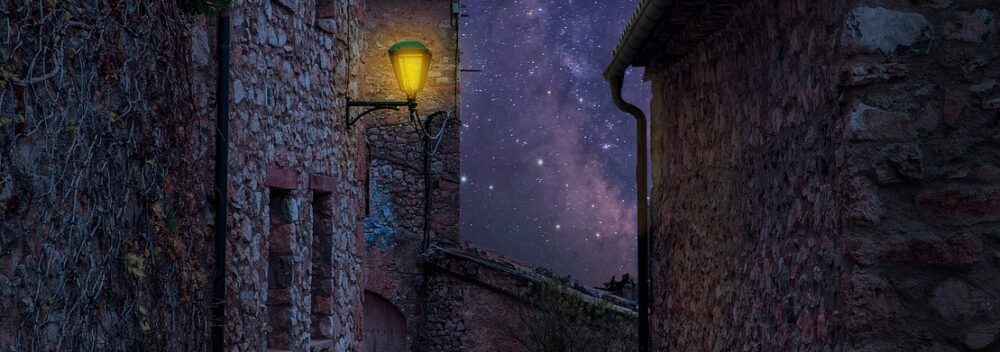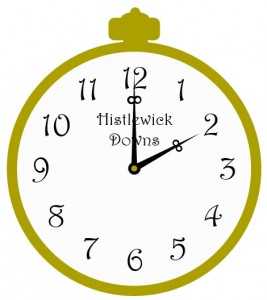1. Faith, Hope, and Charity
Contrary to official reports, my father never was a Heretic. There may have been a time early in his life when he aspired, but if that’s true, it would have been more out of a sense of duty than any real interest. Rather, his was a passion for creating things with his hands—wondrous things of beauty and intricacy. He carved the mechanism for his first clock when he was seven and produced a working music box by eight, but despite his talent for crafting, his aptitude for the craft was nonexistent. It was a failing for which my grandfather never forgave him.
My father’s vain attempts to please my grandfather paid off in a way neither of them anticipated, for although my father couldn’t work a spell to save his soul, his grasp on the underlying theory was prodigious, and he gained a reputation among his father’s peers as a discreet and reliable source of first-rate wands, rings, and other talismans suitable for enchantment. It didn’t take much for a persuasive client to convince him that a lucrative future awaited him, if only he would relocate to Caprian.
The last great bastion of culture to the north, Caprian bordered vast forests peopled by barbaric Drewor tribes. To the southwest, one could find the bustling seaport of Azelon, and thereafter, the lands of Shunese heathens. To the east, the city-state of Trifienne held sway, known best for its patronage of the arts. Beyond Trifienne was the Holy City, domain of the Primal and seat of the Faith, whence came the Inquisition.
At the time, everyone believed Caprian to be the pinnacle of modern civilization, but those of us who lived through the Inquisition know the truth. Civilization is an illusion, a tenuous, intoxicating fog subject to the merest political ill wind. When the fog lifts, all too often it is precisely those who fancy themselves civilized who are slowest to wake to the danger. Like modern-day lotus eaters, they sit, vacuous and uncomprehending, blinking stupidly against the harsh glare of their new reality. So it was with Caprian.
Even as Inquisitors battered down his door, my father refused to accept that they could be doing so for any reason other than a simple misunderstanding. My mother knew better, but she couldn’t bring herself to abandon him.
“Thoren, quickly,” she said. “Climb out the upstairs window. Whatever happens, promise me you’ll stay there until you’re sure they’re gone.”
I scrambled out and flattened myself against the roof in a corner where the eaves of the original structure met the addition. It was a terrible place to hide. Since it was only partially concealed, I had to lie utterly motionless, only able to half-hear the horrors taking place below.
It was well past midnight before I worked up the nerve to climb down. The shop was a shambles. Display cases lay smashed and overturned, disgorged of anything of value to plundering Inquisitors. There was no sign of my parents. Sick with fear, I stumbled out the front door and headed to the neighbors for help.
The Hannikers had been the first to welcome my parents to the neighborhood, and they’d remained fast friends. Mr. Hanniker was a baker of some renown, and I still recall the delicious aromas emanating from the basket Mrs. Hanniker brought to welcome us. Their son Arin and I had made mischief together around town, and I took his loyalty for granted as I would a brother’s. I knocked on the door, confident in the knowledge the Hannikers would rush to my aid.
After some time, a dim light appeared within the house, but the door did not open. As more time passed, I began to feel uncomfortably conspicuous, and rapped again. Bitter silence was my only reply. Presently, the faint light that had seeped through the shuttered windows winked out. With it went my innocence. As I began to fully appreciate my predicament, the image of myself as a street-person came to mind—the sort that even the gentlest of folk pass by as if they don’t exist. They’ve done the math, you see. They know the magnanimity it takes to truly rescue such a wretch.
I sank to my knees in despair. Most are fortunate enough never to appreciate the intimate association between the will to live and the knowledge that someone exists to whom it matters. I no longer counted myself among them. Dawn would have found me wandering dazed and aimless, had not the impact of a pebble glancing off my skull brought me to my senses.
My head shot round in rage. Who had perpetrated this new indignity? Though only sixteen and small for my age, I vowed to go out fighting rather than meekly accept the taunts and jeers of miscreants prone to bullying vagrants. I didn’t go far before I was pelted by another pebble, this time in the back. I whirled and caught a glimpse of the scoundrel disappearing down an alley. Obviously, I was being lured in. It was an old trick, but I was beyond caring. Let them ambush me. Maybe I could goad them into putting me out of my misery while they were at it.
With fists raised, I stalked into the alley only to discover that my bully consisted of a wide-eyed waif of a girl, no more than nine or ten. She stood at the far end and beckoned, clearly expecting me to follow.
“Who are you?” I called out. “What do you want?”
“Quiet, stupid. This way.”
Not exactly cordial, but I got the impression her interest in me must somehow be connected with my predicament. Perhaps she’d seen something useful. Maybe she knew where they’d taken my parents. It was a faint hope, but the only hope I had, and I was determined to pursue it.
When I was younger, I prided myself on knowing more shortcuts and secret ways than anyone else in my neighborhood, but in a matter of minutes, this little girl put me to shame. She flitted ahead like a ghost, visible only long enough to keep me moving in the right direction. At the very moment I was convinced I’d lost her, there’d she be, beckoning impatiently, her big serious eyes skewering me with a look that implied my breathtaking ineptitude had to be deliberate.
It occurred to me that I had unwittingly placed myself in this strange girl’s power. I wasn’t entirely certain I’d be able to find my way back through the maze of culverts, back alleyways, and rent fences on my own. As dawn approached, I was stumbling from exhaustion. The only thing keeping me awake was the knot of hunger gnawing a hole in my belly.
I resolved to corner the girl at the first opportunity, but she proved too clever. Before I knew it, she’d jumped a fence, scurried across a trash-strewn yard, and was rapping with a stick at the back door of a boarded-up pub. Once I realized what she was up to, I kept well back, leery of who might lie in wait behind that door.
Presently a young man answered. Although he wasn’t the slightest bit ostentatious, the quality of his clothing labeled him a man of means. He tousled the girl’s blonde mop and dropped to one knee to hear her tale. After a few moments and with a quick wave of her hand in my direction, she darted past the man and into the pub. The man paused at the door, squinting pensively into the predawn glow. At last he stepped out into the yard, righted a toppled wooden bench, and took a seat.
“Lisbet tells me you’ve had a rough time of it,” he said. “If there’s something I can do to help, I’d be delighted if you’d let me.”
I don’t know what I’d been expecting, but it certainly wasn’t this. Random acts of kindness? Oh please! More likely he was some sort of pimp or slaver. Still, considering my other options, I felt compelled to at least examine the offer.
“And what’s in it for you?”
“Come sit,” the man said, “and we’ll discuss it.”
“And give your friends in the pub the opportunity to surround me?”
“If that were truly my goal,” he said, “you would already be my prisoner. Do you really imagine you’re that well-hidden?”
He had a point. I was so tired I wasn’t thinking straight. Chagrined, I stepped into the yard.
“Let me at least offer you a good meal and a clean bed.”
“No way,” I said. “I’m not setting foot in that place until I know who you are and what you want with me.”
“That’s fair. My name is Armand, and this building houses my charity. I do hope you’ll excuse the mess—we only recently took possession. What I want is for you to have a place to sleep and food to eat until such time as you are able to fend for yourself.”
Despite my skepticism, hunger and exhaustion weakened my resolve. It took all my willpower to deploy a final volley.
“What do you get out of it?”
Armand chuckled. “Although I do subscribe to the notion that virtue is its own reward, while you live under my roof, I would expect you to assist with the day-to-day operation of the charity according to the nature and measure of your abilities. Also, I would hope that once you are back on your feet, you would continue to give as you have received. I trust those terms are not unduly onerous?”
“They sound a little too good to be true.”
Armand stood and beckoned me closer. “You have my word they are not. “Come. Let’s see to your bunk before you fall asleep where you stand.”
There was still something about this situation that didn’t add up, but I was too weary to put my finger on it. The last vestiges of my resolve finally gave way, and I found myself stepping forward to shake Armand’s hand. All memory of the rest of that day is lost to me.
 (0)Dislikes
(0)Dislikes (0)
(0)

Pingback: Review: The Demon of Histlewick Downs by Douglas J. Bornemann – The Bookwyrm's Guide to the Galaxy
This is a great way to put your writing style "out there" for publishing types to see. And for the rest of us, we get the fun of reading an early work by a soon-to-be successful author! (I'm already creating my "I knew him when" commentary!) I'm very intrigued by chapter one, especially the Armand character, and waiting with grand, but impatient, anticipation for chapter two. 😎
Write on, please!